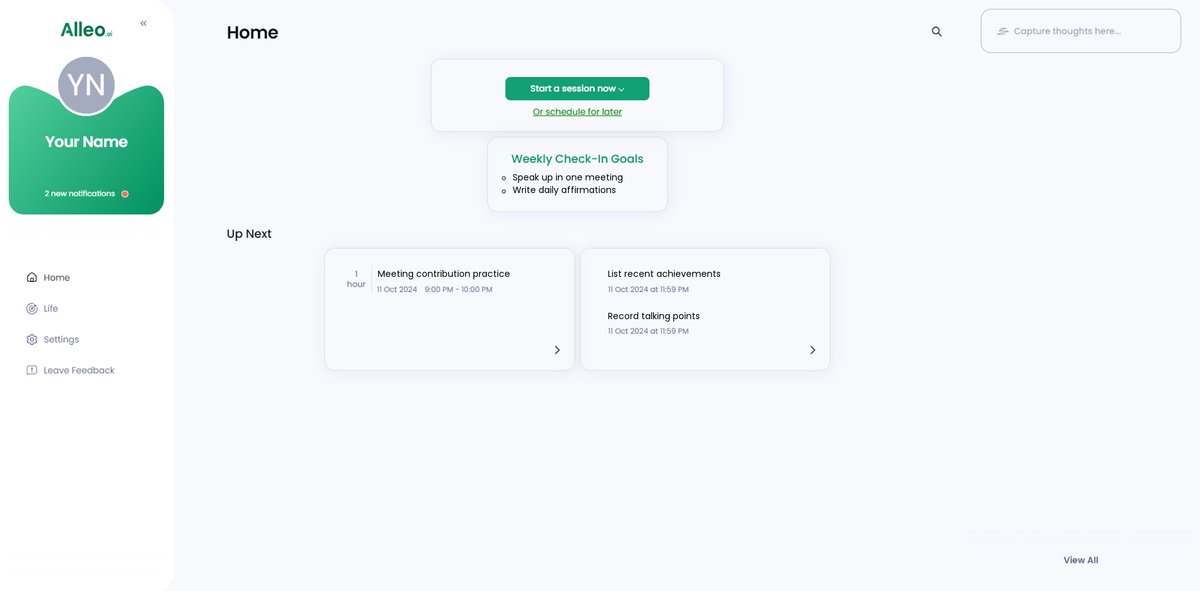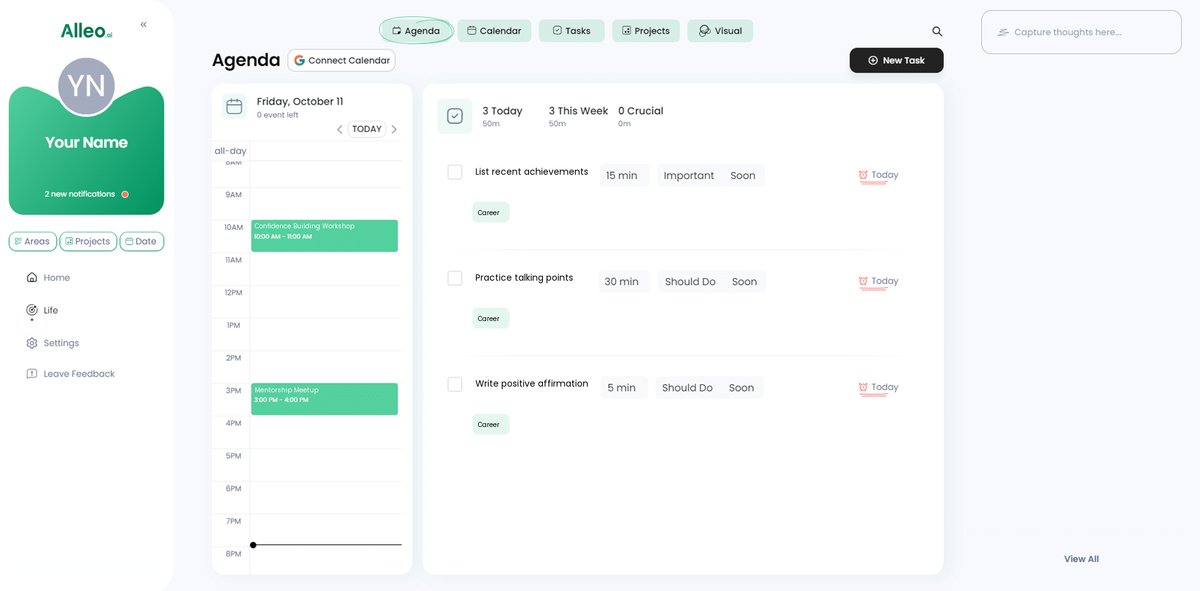7 Proven Strategies to Conquer Impostor Syndrome in Workplace Meetings
Do you often feel like an impostor in workplace meetings, struggling with self-doubt in professional settings?
As a life coach, I’ve helped many professionals navigate these challenges. In my experience, helping clients stand out, I’ve seen the impact of impostor syndrome on career growth and the need for effective communication strategies in meetings.
In this post, you’ll discover proven strategies for overcoming impostor syndrome at work. We’ll explore actionable steps to build your confidence, manage perfectionism in the workplace, and express yourself effectively in professional environments.
Let’s dive in and explore techniques for feeling more competent at work.

Understanding Impostor Syndrome in Workplace Meetings
Overcoming impostor syndrome at work can be particularly challenging in workplace meetings. Many clients initially struggle with self-doubt in professional settings and fear of being exposed as frauds when they need to speak up.
This fear can be paralyzing, leading to missed opportunities for career growth and self-expression. Workplace anxiety coping mechanisms are essential for addressing these challenges.
In my experience, people often find that this syndrome manifests as reluctance to share ideas, worrying excessively about others’ opinions. You might feel that your contributions are not valuable or fear being judged, which highlights the importance of building professional self-esteem.
These feelings can hinder your ability to confidently participate in meetings and advance professionally. Effective communication strategies in meetings can help combat these issues.
Overcoming impostor syndrome at work is crucial for personal and career development. By addressing these challenges through assertiveness training for employees and confidence building techniques for meetings, you can start to build confidence and assert your presence in any professional setting.

A Roadmap to Overcoming Impostor Syndrome in Workplace Meetings
Overcoming impostor syndrome at work requires a few key steps. Here are the main areas to focus on to make progress in combating self-doubt in professional settings.
- Prepare and practice talking points beforehand: List key points, rehearse, and review recordings for improvement, which can help in overcoming fear of public speaking at work.
- Reframe negative self-talk with positive affirmations: Identify negative thoughts, counter with affirmations, and practice daily to build professional self-esteem.
- Focus on facts supporting your competence: List achievements, refer to them before meetings, and share with a mentor to develop techniques for feeling more competent at work.
- Share experiences with trusted colleagues: Identify supportive colleagues, set up check-ins, and encourage mutual support as part of workplace anxiety coping mechanisms.
- Visualize successful participation in meetings: Visualize speaking confidently, use guided imagery, and combine with deep breathing to enhance confidence building techniques for meetings.
- Start small by contributing one point per meeting: Commit to one contribution, build confidence, and gradually increase complexity as part of assertiveness training for employees.
- Seek mentorship for professional guidance: Identify mentors, reach out for mentorship, and schedule regular sessions to develop effective communication strategies in meetings.
Let’s dive in to explore these strategies for overcoming impostor syndrome at work!
1: Prepare and practice talking points beforehand
Preparing and practicing your talking points beforehand can greatly enhance your confidence in workplace meetings, helping in overcoming impostor syndrome at work.
Actionable Steps:
- Create a list of key points: Write down the main ideas you want to discuss in your next meeting, focusing on effective communication strategies in meetings.
- Rehearse in front of a mirror: Practice your talking points out loud in front of a mirror or with a trusted friend to build professional self-esteem.
- Record and review: Record yourself speaking and review the playback to identify areas for improvement, aiding in overcoming fear of public speaking at work.
Explanation:
These steps are crucial because they help you organize your thoughts and reduce workplace anxiety. Practicing your talking points can make you feel more prepared and confident, which are key techniques for feeling more competent at work.
A structured approach, like the one recommended by Mohanbir Sawhney, emphasizes the importance of preparation in overcoming impostor syndrome.
Taking these steps will help you feel more in control and ready to contribute effectively in meetings, combating self-doubt in professional settings.

2: Reframe negative self-talk with positive affirmations
Reframing negative self-talk with positive affirmations is crucial for building confidence in workplace meetings and overcoming impostor syndrome at work.
Actionable Steps:
- Identify negative thoughts: Write down common negative thoughts you have about speaking up, which can contribute to self-doubt in professional settings.
- Create positive affirmations: Counter each negative thought with a positive affirmation as part of your confidence building techniques for meetings.
- Practice daily: Repeat these affirmations daily, especially before meetings, as a workplace anxiety coping mechanism.
Explanation:
These steps are vital because they help shift your mindset from self-doubt to self-confidence. Positive affirmations can rewire your brain to focus on your strengths, aiding in recognizing and combating negative self-talk.
For further insights, check out this resource on overcoming impostor syndrome.
Reframing your thoughts will empower you to speak up confidently in meetings, an essential aspect of overcoming impostor syndrome at work and building professional self-esteem.

3: Focus on facts supporting your competence
Focusing on facts that support your competence is vital to overcoming impostor syndrome at work, especially in workplace meetings.
Actionable Steps:
- List your achievements: Write down your recent achievements and contributions at work. This will help you see your value and combat self-doubt in professional settings.
- Refer before meetings: Look at this list before meetings to boost your confidence and remind yourself of your abilities, serving as one of the effective confidence building techniques for meetings.
- Share with a mentor: Discuss your achievements with a mentor or trusted colleague to get external validation, which can help in building professional self-esteem.
Explanation:
These steps matter because they remind you of your competence, which can combat feelings of self-doubt and are crucial for overcoming impostor syndrome at work.
Reviewing your achievements can reinforce your confidence and help you feel prepared, aiding in managing perfectionism in the workplace. For more strategies, check out this resource on overcoming impostor syndrome.
Building confidence through these steps will help you contribute effectively in meetings and is an essential technique for feeling more competent at work.

4: Share experiences with trusted colleagues
Sharing experiences with trusted colleagues can significantly help in overcoming impostor syndrome at work, especially during workplace meetings.
Actionable Steps:
- Identify supportive colleagues: Look for colleagues who you feel comfortable with and trust to share your experiences, helping to combat self-doubt in professional settings.
- Set regular check-ins: Schedule regular sessions to discuss your progress and challenges with these trusted colleagues, which can serve as confidence building techniques for meetings.
- Encourage mutual support: Exchange strategies that work for each of you and provide mutual encouragement, acting as workplace anxiety coping mechanisms.
Explanation:
These steps are crucial because they create a support network, which can help reduce feelings of isolation and self-doubt, contributing to overcoming impostor syndrome at work.
Regular check-ins and mutual support foster a positive environment. For additional insights, check out this resource on building a learning culture.
Building these relationships will empower you to share confidently in meetings, contributing to your professional growth and helping in overcoming fear of public speaking at work.

5: Visualize successful participation in meetings
Visualizing successful participation in meetings is a powerful technique for overcoming impostor syndrome at work and building confidence while reducing workplace anxiety.
Actionable Steps:
- Spend a few minutes each day visualizing: Close your eyes and picture yourself confidently speaking up and contributing in meetings, combating negative self-talk.
- Use guided imagery techniques: Create a detailed mental picture, including the setting, your voice, and positive reactions from colleagues, enhancing your professional self-esteem.
- Combine with deep breathing exercises: Practice deep breathing while visualizing to help calm your nerves and reinforce a sense of control, addressing self-doubt in professional settings.
Explanation:
These steps matter because visualization can rewire your brain to anticipate success rather than failure. Guided imagery and deep breathing help create a sense of calm and preparedness, serving as effective communication strategies in meetings.
For more insights, check out this resource on overcoming impostor syndrome.
Key benefits of visualization include:
- Increased confidence in your abilities, helping overcome impostor syndrome at work
- Reduced anxiety before meetings, aiding in managing perfectionism in the workplace
- Improved performance during actual meetings, supporting techniques for feeling more competent at work
Visualizing your success will empower you to contribute effectively in meetings and boost your confidence, overcoming fear of public speaking at work.

6: Start small by contributing one point per meeting
Starting small by contributing one point per meeting is pivotal for overcoming impostor syndrome at work and building confidence in professional settings.
Actionable Steps:
- Commit to one contribution: Promise yourself to share at least one idea in each meeting, helping to combat workplace anxiety.
- Choose straightforward points: Begin with simple, clear points to build your professional self-esteem.
- Increase complexity gradually: As you become more comfortable, make more complex contributions, enhancing your assertiveness in the workplace.
Explanation:
These steps matter because they help you gain confidence incrementally. Making small, consistent contributions can reduce self-doubt in professional settings and build momentum, effectively combating negative self-talk.
For more insights on overcoming impostor syndrome, check out this resource on overcoming impostor syndrome.
Taking these steps will make you feel more competent at work and confident in meetings, paving the way for professional growth and helping you overcome fear of public speaking at work.

7: Seek mentorship for professional guidance
Seeking mentorship for professional guidance is crucial for overcoming impostor syndrome at work, particularly in workplace meetings.
Actionable Steps:
- Identify potential mentors: Search within or outside your organization for individuals with experience and insight in managing workplace anxiety and building professional self-esteem.
- Reach out with a clear ask: Contact them, explaining your goals for overcoming self-doubt in professional settings and requesting mentorship.
- Schedule regular sessions: Set up consistent meetings to discuss your progress, receive feedback, and develop confidence building techniques for meetings.
Explanation:
These steps matter because mentors provide valuable insights, support, and validation. Regular sessions help track your growth and address challenges in overcoming impostor syndrome at work.
Learn more about the importance of mentorship from this resource on battling self-doubt.
A good mentor can help you:
- Gain perspective on your professional challenges and develop workplace anxiety coping mechanisms
- Develop strategies to overcome impostor syndrome and manage perfectionism in the workplace
- Build confidence in your abilities and contributions, enhancing your assertiveness and effective communication strategies in meetings
Connecting with a mentor can empower you to navigate workplace challenges confidently, recognize and combat negative self-talk, and grow professionally while overcoming impostor syndrome at work.

Partner with Alleo to Overcome Impostor Syndrome
We’ve explored the challenges of overcoming impostor syndrome at work in workplace meetings. Did you know you can work directly with Alleo to make this journey easier and faster, helping you build professional self-esteem?
Setting up an account with Alleo is simple. Create your personalized plan and start working with our AI coach to combat negative self-talk and develop confidence building techniques for meetings.
Alleo follows up on your progress, handles changes, and keeps you accountable via text and push notifications, supporting your journey in overcoming impostor syndrome at work.
Alleo provides affordable, tailored coaching support, just like any human coach, offering workplace anxiety coping mechanisms and assertiveness training for employees. Plus, you can try it free for 14 days, no credit card needed.
Ready to get started for free and begin overcoming impostor syndrome at work? Let me show you how!
Step 1: Log In or Create Your Account
To begin your journey in overcoming impostor syndrome, log in to your existing Alleo account or create a new one to access personalized AI coaching tailored to boost your confidence in workplace meetings.

Step 2: Choose Your Focus Area
Select “Setting and achieving personal or professional goals” to tackle your impostor syndrome head-on. This focus will help you build confidence and overcome self-doubt in workplace meetings by setting clear objectives and tracking your progress.

Step 3: Select “Career” as Your Focus Area
Choose “Career” as your focus area in Alleo to directly address workplace confidence and impostor syndrome challenges, aligning perfectly with the strategies discussed for enhancing your performance in meetings and professional settings.

Step 4: Starting a coaching session
Begin your journey with Alleo by participating in an intake session, where you’ll collaborate with our AI coach to create a personalized plan for overcoming impostor syndrome in workplace meetings.

Step 5: Viewing and managing goals after the session
After your coaching session, open the Alleo app to find your discussed goals displayed on the home page, allowing you to easily review and manage your progress in overcoming impostor syndrome in workplace meetings.

Step 6: Adding events to your calendar or app
Use Alleo’s calendar and task features to schedule and track your progress in overcoming impostor syndrome, such as setting reminders for practicing talking points or visualizing successful meeting participation.

Empower Your Voice in Workplace Meetings
We’ve explored how to tackle impostor syndrome in workplace meetings, a key aspect of overcoming impostor syndrome at work.
Remember, you’re not alone in feeling this way. Many women face similar challenges and experience self-doubt in professional settings.
By preparing talking points, reframing negative self-talk, and focusing on your achievements, you can start to overcome these feelings and build professional self-esteem.
Sharing experiences with trusted colleagues and seeking mentorship will further support your journey in managing perfectionism in the workplace.
Visualizing success and starting small will build your confidence over time, helping you overcome fear of public speaking at work.
Alleo can assist you every step of the way, offering personalized support and reminders to help you develop effective communication strategies in meetings.
Take charge of your professional growth and self-expression. Start your free trial with Alleo today, and begin your journey toward confident participation in workplace meetings and overcoming impostor syndrome at work.